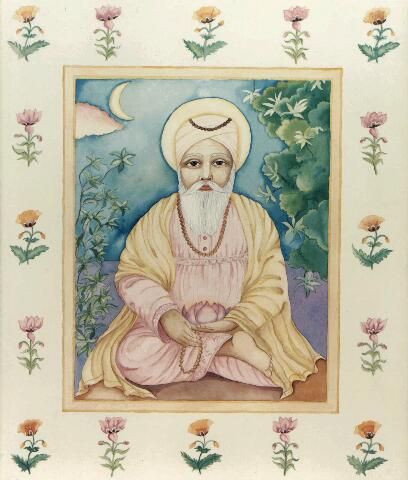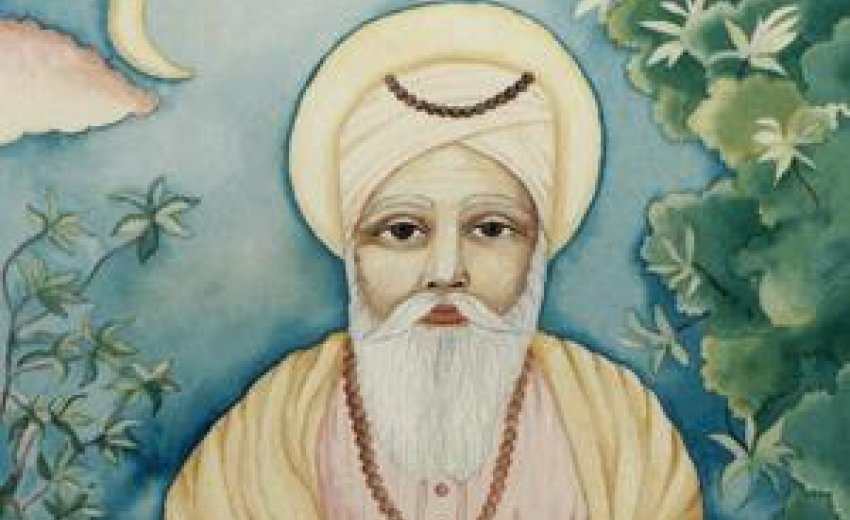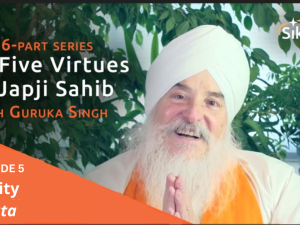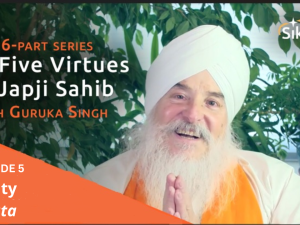 Throughout the cycle of time, the Ages change like the change from dawn to dusk. Sometimes Dharma rules and righteousness prevails. Man then walks with the consciousness of Truth. He lives in the bounty of beauty and the flow of love. The individual soul is in communion with the Supreme Soul. This Age of Truth changes when Man forgets the Creator, the cause of every effect, and fails to dedicate his actions to Him. The individual ego becomes confined in selfish activity. The G O D (G for Generating principle; 0 for Organizing principle; and D for Destroying principle) is forgotten and the gap which grows between Man and his own higher consciousness brings him pain and misery. Individual man becomes so limited that he finds it difficult to sustain himself.
Throughout the cycle of time, the Ages change like the change from dawn to dusk. Sometimes Dharma rules and righteousness prevails. Man then walks with the consciousness of Truth. He lives in the bounty of beauty and the flow of love. The individual soul is in communion with the Supreme Soul. This Age of Truth changes when Man forgets the Creator, the cause of every effect, and fails to dedicate his actions to Him. The individual ego becomes confined in selfish activity. The G O D (G for Generating principle; 0 for Organizing principle; and D for Destroying principle) is forgotten and the gap which grows between Man and his own higher consciousness brings him pain and misery. Individual man becomes so limited that he finds it difficult to sustain himself.
Today we live in such a chaotic age Kali Yug. Man wants to seek God, to realize Him in his higher consciousness. He searches for methods and techniques to break down the boundaries which separate him from God and reactivate the flow of consciousness by merging into the Supreme Consciousness of the Cosmos.
In this Age spiritual teachers abound, but many, unfortunately, instead of guiding Man to freedom, are so entrapped in their own "spiritual egos" that they act as traps, like a web for the fly, where a man is sucked dry.
in times like these, 500 years ago, in the skies of India there were dark, dark clouds. Righteousness was nowhere to be found. Ego and selfishness were eating humanity, rulers were massacring the innocent, and the earth was soaked with blood. The cries of the poor and the innocent reached the Creator, and by the mercy of His Supreme Consciousness, He manifested through a very pure and humble channel in the form of Guru Nanak.
Nanak was a man of consciousness and universal awareness. His Guru was the Shabad (Word) and with the practice of the Word and the Nam (Holy Name of God) he praised the Lord, singing to Him in the ecstatic rhythm and melody of that Divine flow which soothed embittered minds and gave happiness and contentment to men. He traveled throughout the East, showing the so called holy men of his time the traps of maya, exposing their spiritual egos and giving them the message of brotherhood and God consciousness. His practical approach is a clear demonstration of the continuous manifestation of God's light, leading to the infinite and total supremacy of the higher consciousness which is beyond all outward robes and rituals.
The powerful radiance of compassion and Truth shining through his words clearly showed humanity that only by creating the holy vibration or Nam in ecstasy, by preparing the physical body to vibrate the Name of God, and by tuning the mind to beam this Name, could the individual consciousness merge into the Supreme Universal Consciousness.
"I have come to the world in search of Truth" -Guru Nanak Dev Ji
How it all Began
Guru Nanak was born in 1469 A.D. at Talwandi, a small village forty miles from Lahore, now in Pakistan. in his childhood he preferred the company of wandering holy men to that of his schoolmates. He worked at several profes¬sions, married and was the father of two sons. Still in his twenties, he left his family and took to the road with two companions: Bala, a Hindu, and Mardana, a Muslim. They traveled on foot over thousands of miles to enlighten people with simple songs sung in ecstatic rhythm. The melodies of those Divine songs soothed embittered minds and gave happiness and contentment to all who listened. They traveled through the northern and southern parts of India. They talked and sang to Siddha Yogis in the Himalayas and to Buddhists in Burma, Tibet, and Ceylon. They crossed Arabia and Iraq to sing to the Muslim Hajis and Imams in Mecca and Baghdad. They visited the land of the black Habash, Abyssina, and the islands of the Indian Ocean. And everywhere they went hearts sprang open filled with the love of God and humanity.
During the last fifteen years of his life Guru Nanak settled in the town of Kartarpur where he continued to teach. The low consciousness in the political, social, economic and religious institutions of his times paralleled that of today. He was an outspoken critic of these conditions and taught practical ways for Man to liberate himself from them. Ethics and morality were the very founda¬tion of Guru Nanak's teachings. Spiritual evolution was not possible without righteous living. For Nanak there was no difference between the every day life and the spiritual life. At Kartarpur he worked as a farmer and supplied free food from a common kitchen, where all, regardless of caste or religion, were fed from the same platform.
Guru Nanak strove to purify the religious institutions of his time. He sacri¬ficed his eldest son, Baba Siri Chand, to this end by ordaining him as head of a group of ascetic yogis. At that time many yogis and other "holy men" were ob¬sessed with having occult powers and were harassing the ordinary householder. Baba Siri Chand went around the country preaching the Name of God to the egocentric yogis and brought them back on the path of love and supreme consciousness.
Those who gathered around Guru Nanak were known as "sikhs" disciples of the Guru, both of Guru Nanak and of the Universal Guru, whose wisdom and teachings Nanak humbly manifested. "The Guru makes a devotee conscious of his higher needs and sets him on the path of love, service and devotion," said Nanak.
Guru Nanak was a great seer, saint, and mystic. He was a prolific poet and a unique singer, a prophet of peace, love, truth and the Aquarian renaissance. He was centuries ahead of his times. His universal message is as fresh and true today as it was then. In fact, he belongs to that category of transcendent human beings who do not belong to any particular sect, creed, or religion but who belong to the entire humanity. Listening to his words and songs we can all blossom into our own identity and remember who we are, just as his listeners did then.






